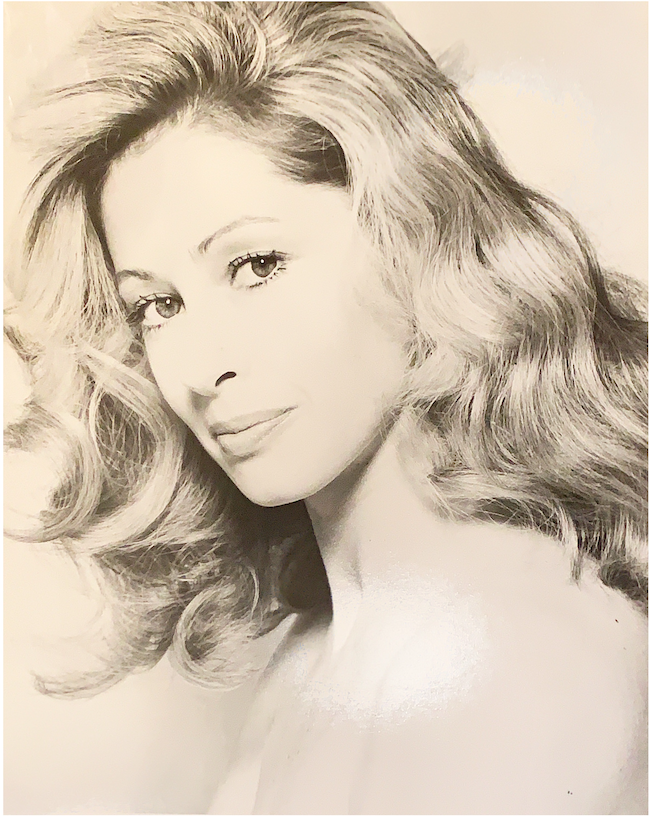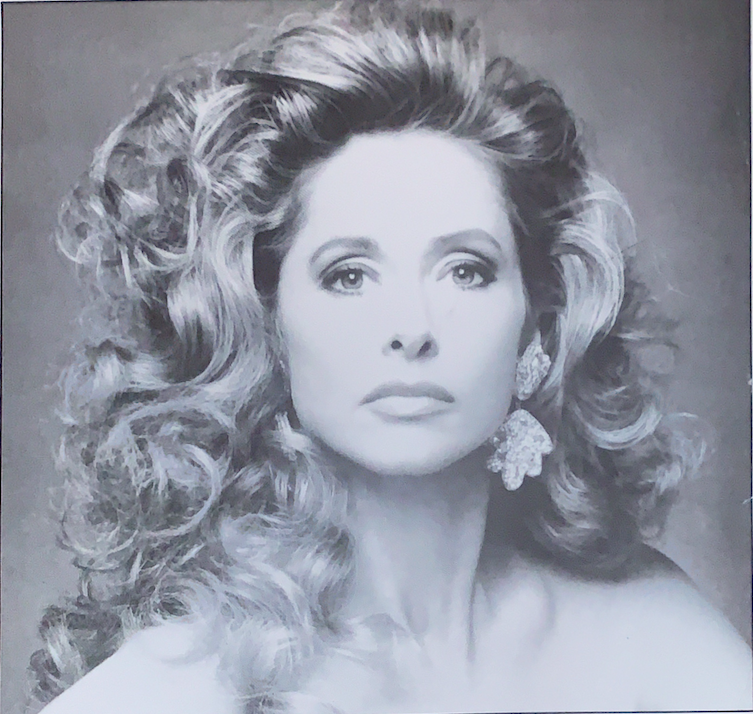
I never even thought I would have to ponder this question. How do you honor someone’s life when the traditional rituals for doing so have been halted? For distant family and friends, how can they let someone know that they love them and wish them peace when they can’t be by their bedside?
How do you make sure that they don’t slip away without proper acknowledgment?
You write about them – you shout about them. You don’t just honor their contributions to this planet, you declare them. You write long and hard and often about the impact that they had on your life. With formal funeral gatherings delayed indefinitely, we must take on the important responsibility of honoring those we lose during this period of time. We must ensure that the impact they had is not lost when all attention is focused elsewhere, and people are prohibited from gathering to collectively share their sorrow and condolences.
In writing about my mother, Sharon Olivia Fondrevay Sefert, I wish to acknowledge the outsized impact she had on my career success. Some of that success I acknowledge readily and some I admit begrudgingly…come on, what daughter hasn’t had that argument with her mother saying she had no clue, only to appreciate later she was right all along?. I am also sharing her passing because her impact was widespread. So many of my girlfriends shared with me over the years what a powerful influence my mother had on their careers. I wish to impart the wisdom she shared that had such a huge contribution to so much career success.
To understand all of this you need to know one key piece: I have the unique distinction of having had a fashion-model mom.
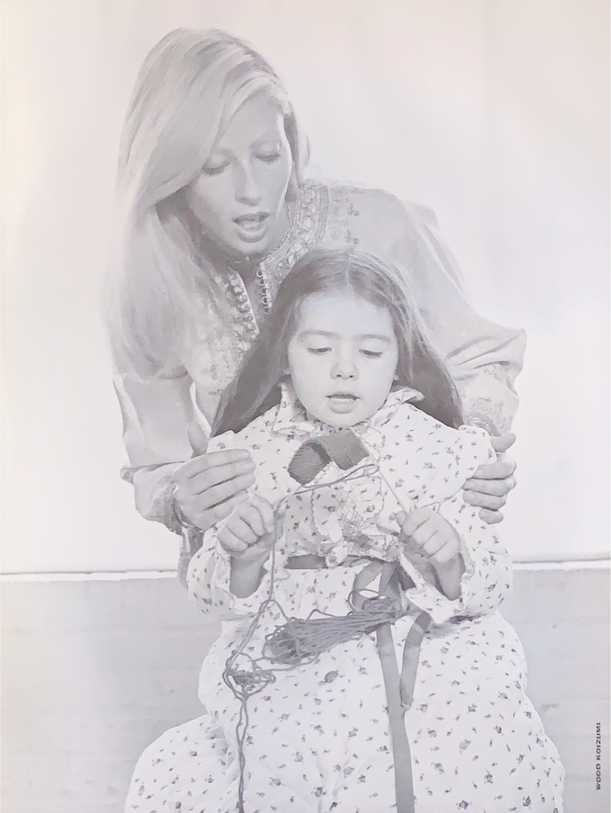
Lest you think my mom was one of those supermodels who didn’t roll out of bed for less than $20k, let me be clear: a fashion model in Chicago from the mid-1960s through the late ‘80s, treated modeling like a job. You didn’t decide what you would roll out of bed for, you just did it. She made her living doing the bread and butter of Chicago modeling: catalog shoots for places like Wickes Furniture; trunk shows and runway jobs at stores that have long since disappeared, such as Bonwit Teller, I. Magnin, Carson Pirie Scott, and Marshall Fields.
Being a fashion model’s daughter brought with it both the glamour you would expect (I have some amazing Yves Saint Laurent hand-me-downs) as well as the odd experiences you might never believe. For instance, on more than one occasion my mother would be running late to a fashion show. She tended to book several jobs in a row for the income without truly appreciating the time it took to get from one gig to the next. My sister and I were inevitably pulled into her acting drama as we would get pulled over by cops for speeding and would have to act as though one of us was violently ill, appearing as if we needed to “throw up” on the side of the road to prove how sick we were. My sister Ashley and I agree she deserved an Oscar for her part.
My mom was already a bit of an exception as a divorced woman raising two kids while modeling. She divorced when I was 12 and determined she had a better chance of making a decent buck modeling then she did as a speech therapist working in Chicago Public Schools. Oh, and the other thing. She was absolutely beautiful.
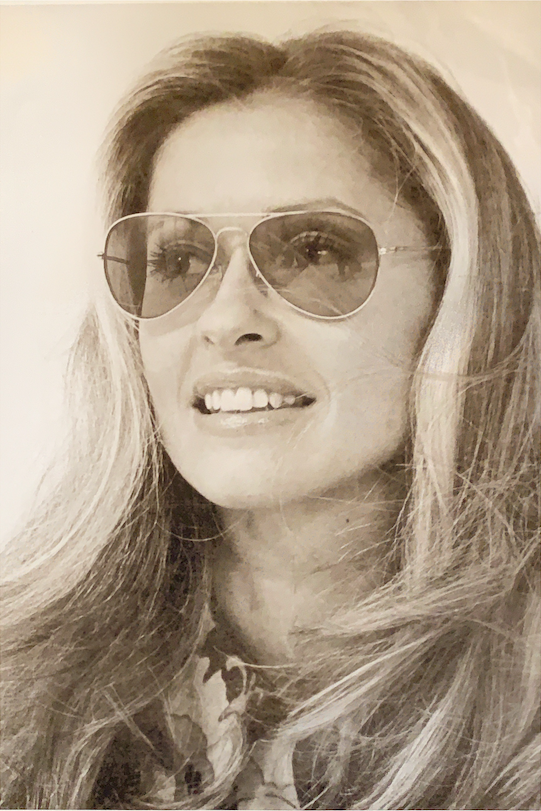
I have experienced that wonder and awe when you walk into a room and it seems like all conversation stops as people stare. In this case, at my mother. It didn’t matter where we were, she just had that power. I went to an all girl’s Catholic boarding school in Southern Indiana in the mid-’80s (how and why that happened is a completely different article). My mom came down once for Career Day (even the nuns realized we were not all going to become nuns), and the nuns and priest, as well as my fellow classmates, were all transfixed by my mother. Girls dressed in blue-gray uniform skirts and cardboard-like white shirts listened raptly as my mother extolled the virtues of inner beauty, your posture and walking with grace and most importantly — getting a good education.
Years later, one of my girlfriends from school explained that my mom represented what was possible as a female in life. What you could achieve if you put your mind to it. It was at that moment I realized that I’d had the unique privilege of being raised by someone who knew the strengths and benefits of being a female, along with the importance of “personal branding” before personal branding was even a thing.
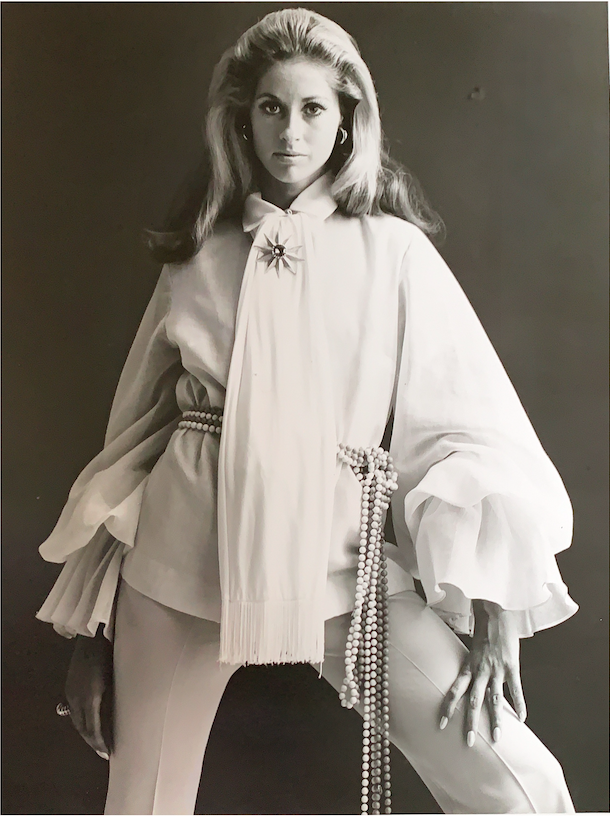
It’s hard to whittle down all of the advice she gave me over the years. There was a lot of it – some well-received and some (much) rejected. But as you get older, you realize that your mother, as much as she may annoy you, as much as you wish she would just let you live your life the way you want to, that she is trying to do just that: let you live a better, more fulfilled life than she did by passing on her wisdom. But as we all know, sometimes we need to learn lessons the hard way.
Here are three key lessons she imparted that propelled my career, and as I’ve since learned, many others:
Look your best, at every moment
Pay attention to what you wear. My roommates in graduate school found it hysterical that when I spoke to my parents after a job interview, they could always tell when I spoke to my dad and when I spoke to my mom. My father, who was an executive in international sales and then quality management, would grill me on the questions asked during the interview and how I answered them, letting me know if he thought I had a shot at getting the job. My mom, on the other hand, would always ask, “What did you wear?” And as I described my outfit, she would ask what accessories I wore and if I wore the so-and-so earrings or necklace or high heels or pantyhose (yes, we got down to that level of detail). And once she felt she had a complete picture of what I wore, she would always say, “I bet you looked great. And that you made the right impression.” In her view, I was worthy of every job I went out for and it was the hiring company that was either smart or complete idiots. God, how I miss that cheerleading now.
Respect yourself, and others will respect you.
If you remember only one thing, remember this advice as it is the most critical of all. In life, in business, in relationships, in parenting. In EVERY interaction you have in life – if you respect yourself, others will respect you. I saw that in every interaction I had throughout my career: whether as a junior account executive in advertising working with creatives, media planners and clients or even as the global head of integrated marketing at Nokia working with senior management: if I respected myself and my work product, there was always a like response. It was when I wavered, when I didn’t have respect for my work, when I suffered from imposter syndrome and doubted my value that others reacted in kind. My mother did NOT support or promote over-confidence or arrogance. What she believed in, to her core, was self-respect. If you didn’t respect yourself why would others?
Beyond Executive Presence, be present.
I mentioned earlier my mom could stop conversations in restaurants. She claimed to never be aware of this, declaring her near-sightedness kept her from noticing that people dropped forks as she walked by. For her, it was about BEING present – in the moment. It was less about the impact you would have on people and more about how present you were for people. Mind you – she gave me a lot of schooling in having an executive presence. Practicing walking in high heels was an after-school activity and I learned how to “read a room” very early in life, thanks to her. I am certain that many ideas I presented during my career for which I had success were because I’d learned to calibrate how people were feeling or thinking and position my ideas to connect with their interests.
That, in and of itself, is invaluable business advice. But she didn’t stop there. For her, having executive presence was table stakes. As her daughter, I should know that was important. What she found more important was that you be present – as a person, a friend, as a work colleague – that when someone needed you, you would be there. It taught me to be courageous in work. To speak up and be present when people were counting on me. It is why I do the work I do now.
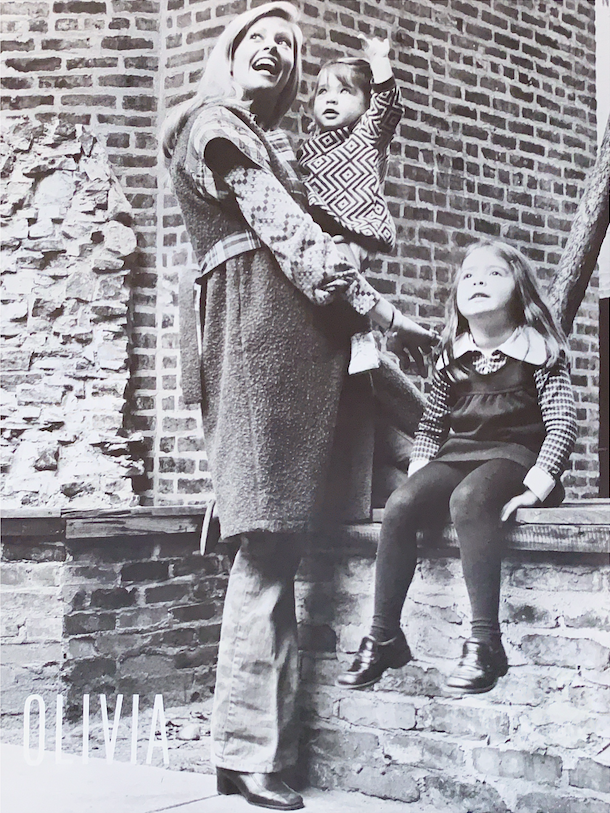
Rather than dwell on what Parkinson’s took from my mother, I choose to focus on the gifts she gave to me that have made me successful. She was beautiful and wicked smart and reminded me that both were equally important to her success. She never just rested on her looks. I share her invaluable business guidance, because it’s advice that I got for free simply because I was her daughter.
How do you mourn someone during a pandemic? You honor them by sharing loudly the impact that they had. I choose to honor my mother in writing with the hope that the amazing advice I received throughout my life will help others in their career.
